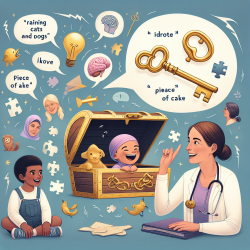Introduction
The COVID-19 pandemic posed unprecedented challenges for families, particularly those caring for individuals with autism. With the sudden closure of schools and in-person services, caregivers faced increased stress and disruption in daily routines. In response, Spartan Caregiver Support (SCS) emerged as a beacon of hope, providing free telehealth services to caregivers of individuals with autism in Michigan. This blog explores the program's key findings and offers insights for practitioners looking to enhance their skills and outcomes for children.
Understanding the Impact
During Michigan's stay-at-home order, caregivers reported significant challenges, including:
- Increased problem behaviors such as aggression and self-injury.
- Difficulties with social and play skills.
- Challenges in maintaining academic routines and daily living skills.
The SCS program provided a lifeline, offering targeted support through video conferencing technology. Caregivers received advice on managing behavioral challenges, establishing routines, and fostering communication skills.
Implementing Telehealth Solutions
Telehealth emerged as a crucial tool for delivering behavioral interventions. The SCS program demonstrated that telehealth could be socially acceptable and cost-effective, with caregivers finding it as beneficial as in-person training. This shift to remote support highlights the potential for telehealth to bridge gaps in service delivery, particularly during crises.
Encouraging Further Research
The success of the SCS program underscores the need for continued research into telehealth's role in supporting families of individuals with autism. Future studies could explore:
- The effectiveness of on-demand telehealth support for focused interventions.
- Strategies for expanding telehealth access to families on waitlists for comprehensive services.
- Standardizing procedures for remote behavioral interventions.
By leveraging technology, practitioners can extend their reach, offering vital support to families in need and ensuring that children with autism receive the care they deserve.
Conclusion
The Spartan Caregiver Support program serves as a model for how telehealth can be harnessed to provide essential services during times of crisis. By embracing technology, practitioners can create positive outcomes for children with autism and their families. As we look to the future, it is crucial to continue exploring innovative solutions that address the unique challenges faced by caregivers.
To read the original research paper, please follow this link: Spartan Caregiver Support: Program Description and Key Findings During Michigan’s Stay-At-Home Order.










